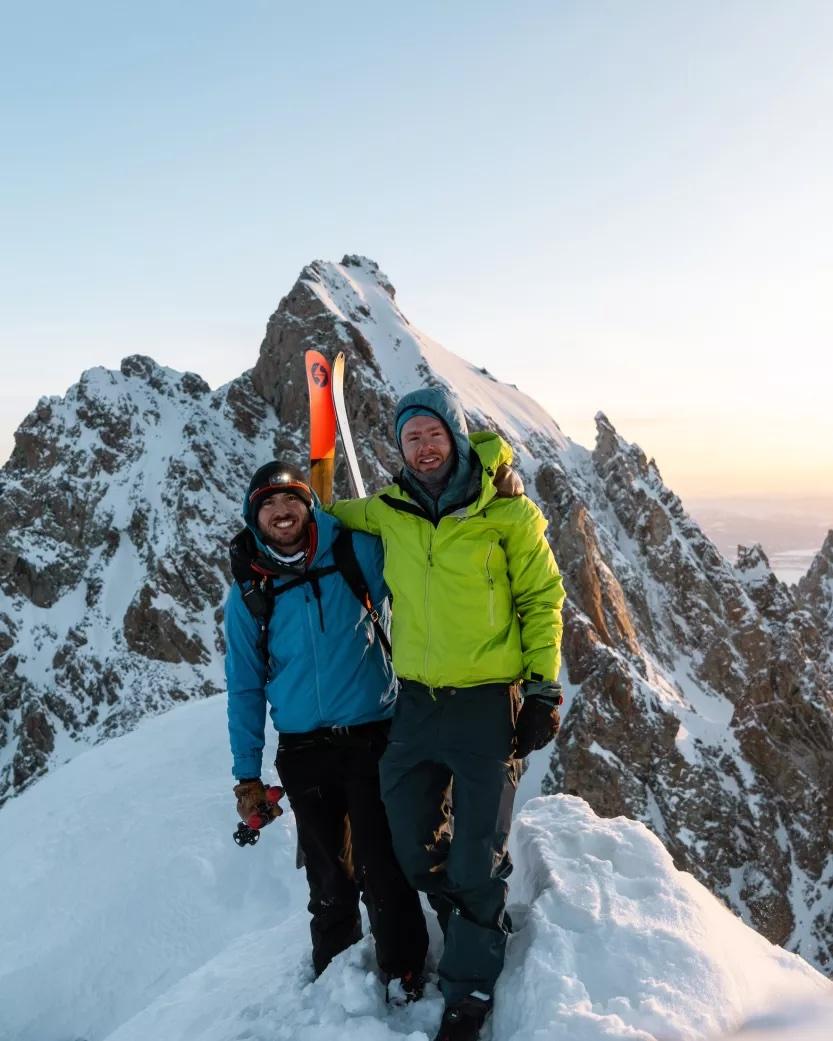
A Signal Mountain summit view of the Tetons, Grand Teton National Park / Rebecca Latson
In a big win for filmmakers, a provision in the EXPLORE Act, passed yesterday by the Senate and headed for President Biden's desk soon, eliminates the need for photographers and videographers to secure permits to film, even for commercial purposes, in national parks.
This comes just a day after a lawsuit challenging the NPS ban on commercial photography in the parks was filed by the Foundation for Individual Rights and Expression (FIRE) a free speech advocacy group, on behalf of adventure filmmakers Alexander Rienzie and Connor Burkesmith. Rienzie and Burkesmith were attempting to film an attempt to set the FKT for ascending the Grand Teton earlier this fall and were refused a permit. The National Press Photographers Association joined the lawsuit.

Alexander Rienzie and Connor Burkesmith on the summit of Middle Teton, mid-way through Teton Trifecta / Courtesy of Connor Burkesmith
Currently, for photgraphers and filmmakers to capture images or video in national parks that they intend to profit from commercially, they must first secure a permit. Even if they're filming on a smartphone or a small, consumer digital camera.
But the EXPLORE Act does away with those requirements, with provisions.
According to FIRE, as long as filming takes place where the public is already allowed, doesn't harm or otherwise impact park resources or visitors, and involves fewer than six people, no permit will be necessary. Further, if an activity is already allowed in the park, no permit to film it is required. If NPS has already permitted an activity, like a wedding, for example, no additional permit to film it will be required.
In a statement, Reinzie said the bill's passage will encourage more small-scale film production in the parks. "This is fantastic news not just for Connor and I, but for all the outdoor filmmakers who struggled to navigate the outdated and arbitrary permit system. We called on Congress to act, and they listened. We're deeply grateful for the legislators on both sides of the aisle that stood up for free speech and the rights of Americans across the country."
Commercial filming in national parks has required permits since 2000 when Congress passed a law trying to protect parks from large-scale movie strudio production. Or, to at least share some of the profit from commercial filming projects with the national parks. Filming for "news-gathering" purposes has generally been allowed, but it's been a contentious issue. Three different people could use thier iPhones to film something happening in a national park, say a moose crossing a road in Yellowstone, and if one of them was a journalist, one was a tourist, and one was a commercial filmmaker, the only person required to obtain a permit would have been the commercial filmmaker. Undoing that requirement was the point of the lawsuit.
The EXPLORE Act's passage, however, and the assumption that President Biden signs the bill, renders that lawsuit moot.

 Support Essential Coverage of Essential Places
Support Essential Coverage of Essential Places






